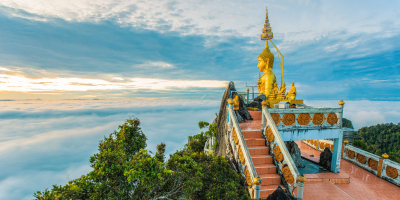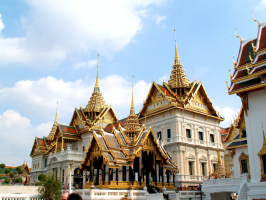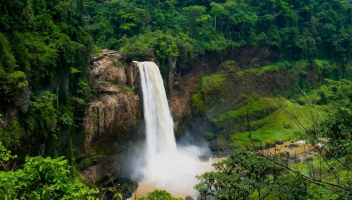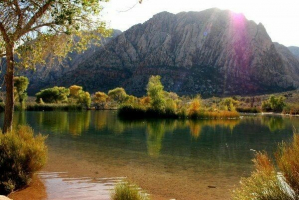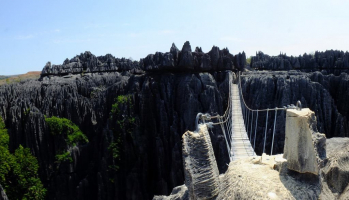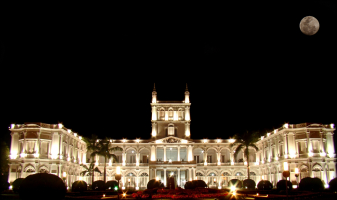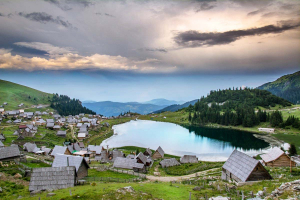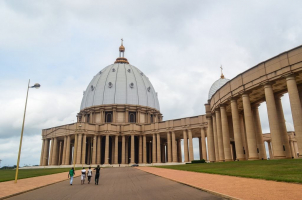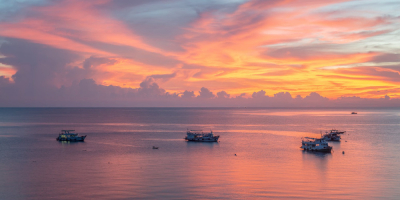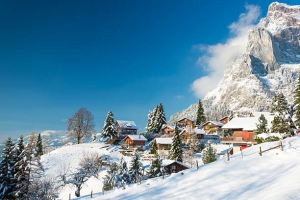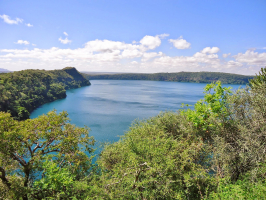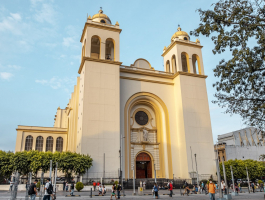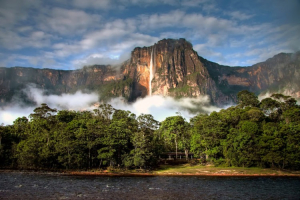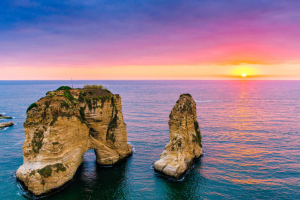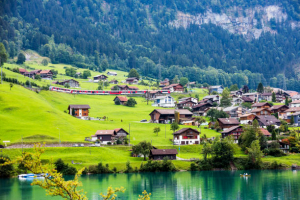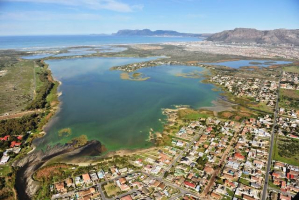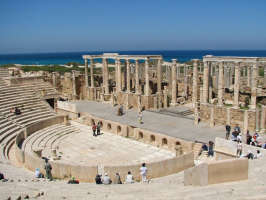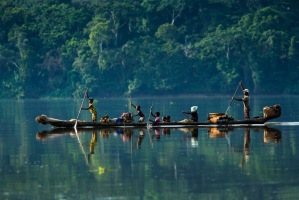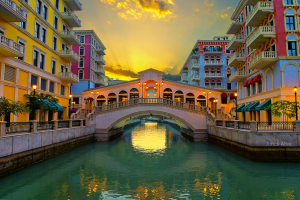Top 10 Best Temples to Visit in Bangkok
For visitors who want to experience everything in one place, Bangkok offers a wide range of possibilities. One of the most compelling reasons for tourists to ... read more...visit this area is the amazing Bangkok temples, which are a special part of the capital's heart and soul. These well-known temples in Bangkok, which abode in spirituality, are also stunning when it comes to their visual beauty. Check out the list below to have more information!
-
Wat Pho, which is located just outside the Grand Palace enclosure, is a great addition to your palace tour if your feet are up for more walking. It is one of the oldest wats in the nation, which was built in Bangkok before the city became the kingdom's capital.
The Wat Pho grounds are over 80,000 square meters in size and contain numerous chedis (stupas holding relics), praying halls, pavilions, formal gardens, and numerous life-size stone statues guarding the temple gates. The Temple of the Reclining Buddha, which holds a Buddha figure that is so large that is 45 meters long and 15 meters high, is today what gives Wat Pho its greatest notoriety. Wat Pho is also highly known for being the site of Thailand's first public university. However, the temples still run a school for massage and natural medicine, even if science and literature are no longer taught here. That makes Wat Pho the ideal location for tourists to get a traditional Thai massage.
Address: 2 Sanamchai Road, Grand Palace Subdistrict, Pranakorn District
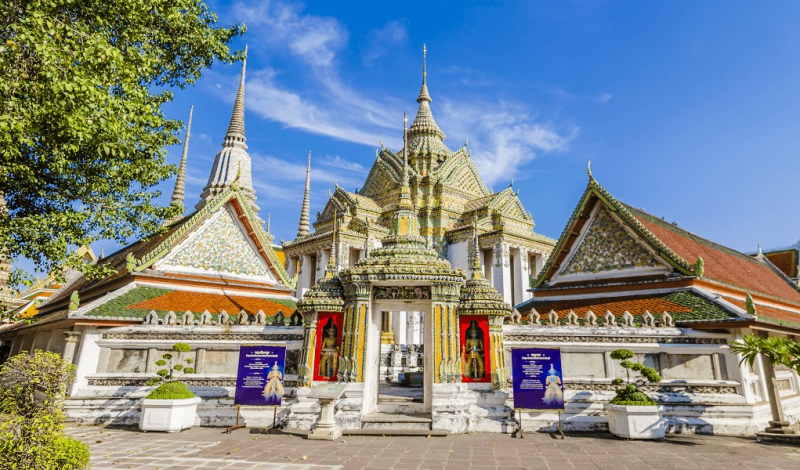
Wat Pho 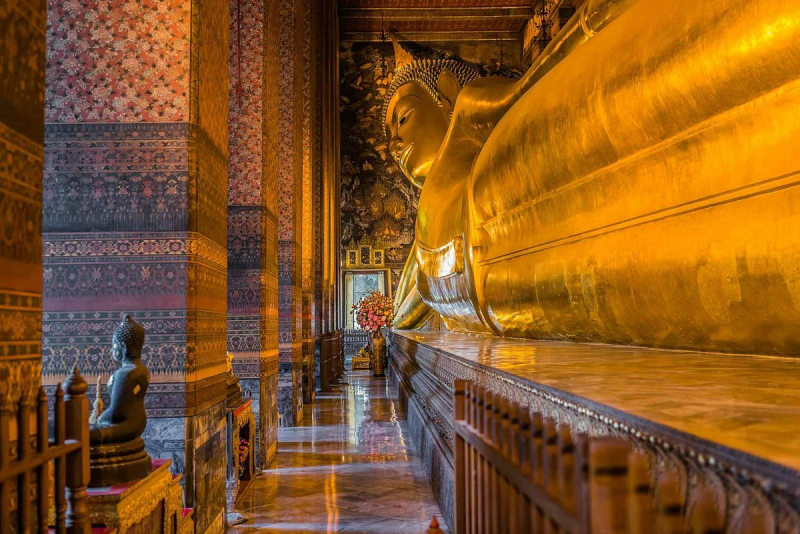
Wat Pho -
Wat Arun has a triumphal complex since its origins are in past wars between the former Siam and Burma. After being taken over by the Burmese, Ayutthaya was reduced to ruins and ashes, but General Taksin and the remaining survivors vowed to march and build a temple here "until the sun rose again". It was the Temple of the Dawn or Wat Arun. The new king later built his royal palace and a private chapel here.
Wat Arun is best viewed early in the morning when the sun is just rising and reflecting off the walls of the temple, giving the ornately decorated structures a pearly shine. Another excellent vantage point is from a small local ferry that crosses the Chao Phraya River at any time of day. You can also take a boat from Wat Pho Temple and land at Wat Arun right across the river for breathtaking views of both temples.
Address: Arun Amarin Road, Bangkok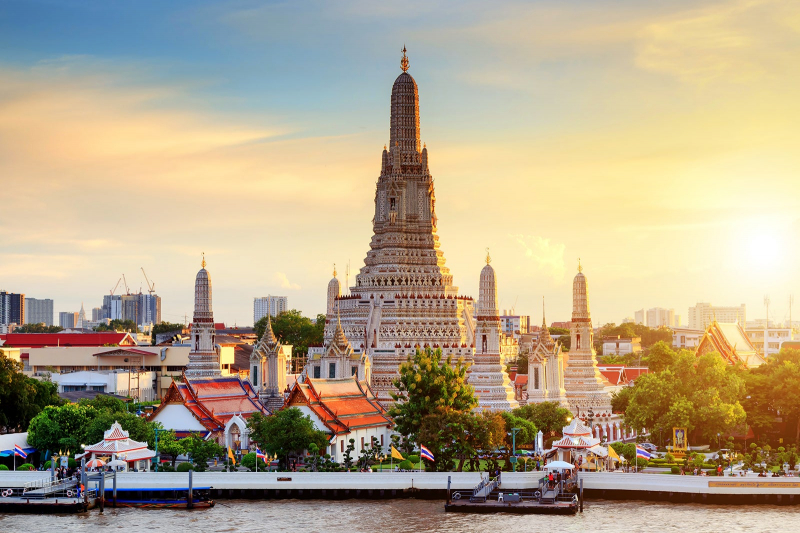
Wat Arun 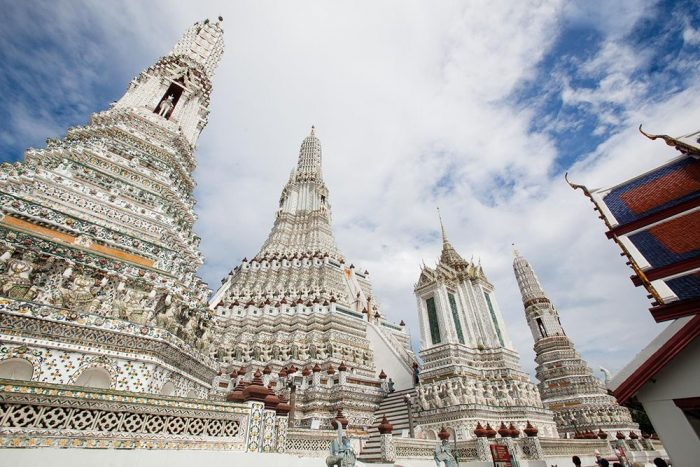
Wat Arun -
Wat Benchamabophit, also referred to as the marble temple since it is constructed of Italian marble, used to be a great place to visit if you desired fewer visitors. However, the temple gained popularity once it was included as a stop in the Amazing Race 9, and foreign visitors are now frequent here.
Benchamabophit is a stunning gold and red temple that is definitely worth a visit. It is still more peaceful than the Grand Palace and other significant wats. The temple is a beautiful blend of high gables, a marble courtyard, lacquer and gold details on walls and ceilings, and was constructed to match the elaborate style of King Chulalongkorn's palace nearby. But the 52 Buddha statues that surround the assembly hall may be the temple's most stunning feature.
Address: 69 Sydney Road, Bangkok
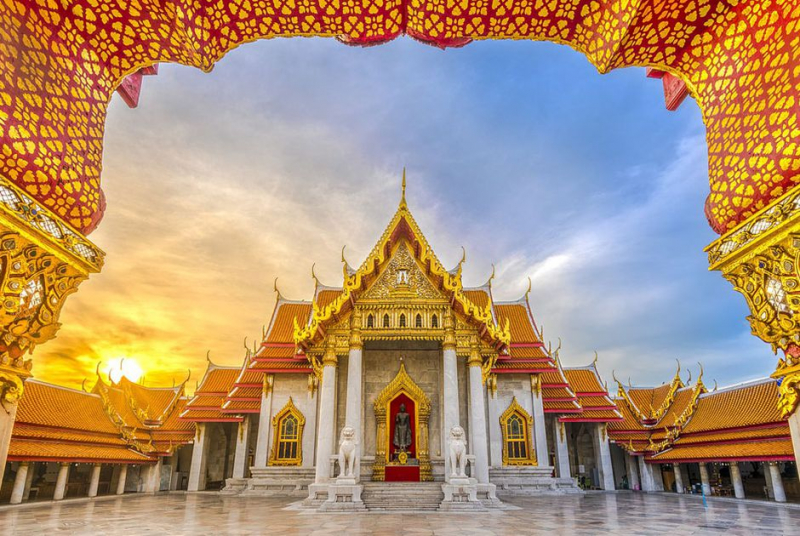
Wat Benchamabophit 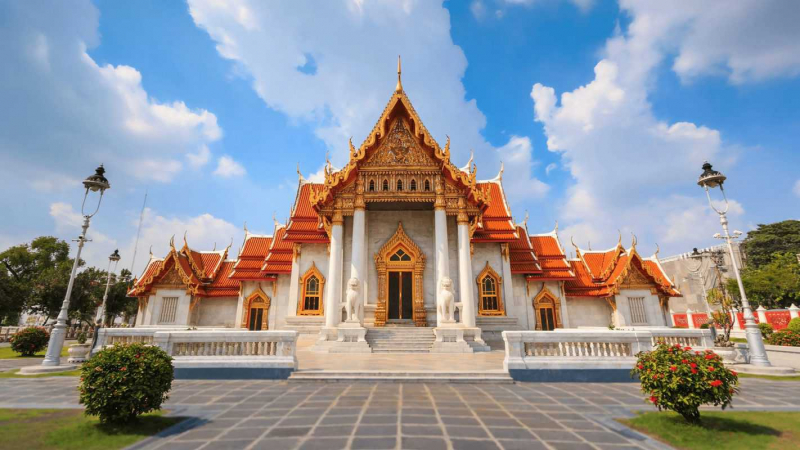
Wat Benchamabophit -
Wat Phra Kaew, also referred to as the Temple of the Emerald Buddha, is situated on the grounds of the Grand. The temple was built in 1783 and the famous Emerald Buddha is kept within the grounds of the temple. It is 66 centimeters (26 inches) in height, 48.3 centimeters (19 inches) in width at the lap, and it is carved from a single piece of grey-green jasper found in Africa and India.
Despite its name, the Emerald Buddha is actually carved from a single piece of jade stone rather than being formed of emerald. The Buddha image is elevated above the heads of visitors because it is a sign of respect. It is regarded as Thailand's protector. Only the king and the crown prince are permitted to touch the statue because it is sacred. Three times a year, the king performs an elaborate ceremony for good fortune during which he changes the robes which cover the statue.
Address: Na Phra Lan Road, Phra Borom Maha Ratchawang, Phra Nakhon
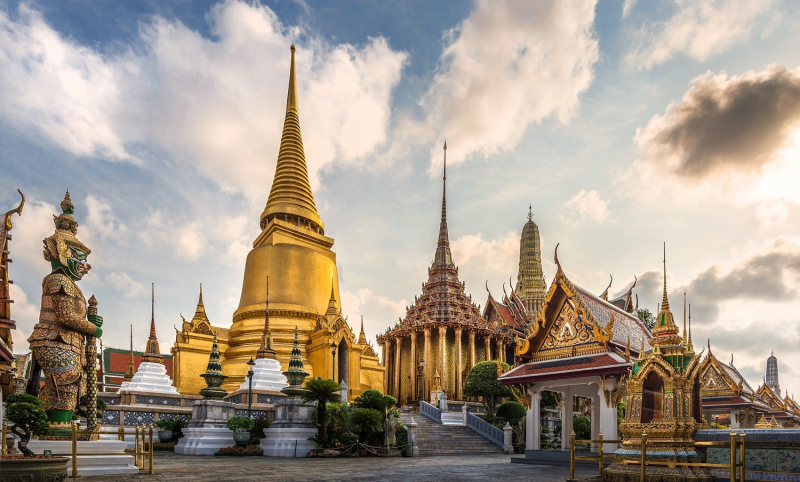
Emerald Temple 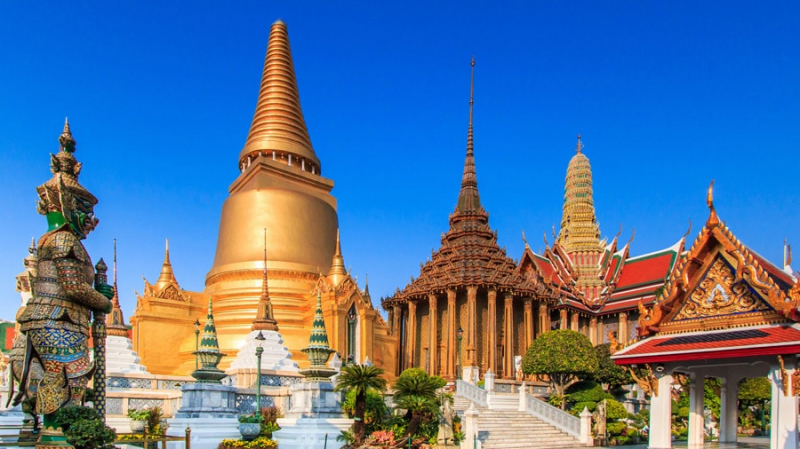
Emerald Temple -
Wat Saket in the center of Bangkok is located at the top of an 80-meter-tall hill and is only accessible by climbing 300 red and gold steps. The massive golden chedi (a Buddhist stupa), which houses a relic of the Buddha, is the part of the temple that is most visible from below.
Trees and gardens surround the temple, offering a peaceful break from the hectic bustle of Bangkok. Two annual festivities that take place in November are one of the reasons Wat Saket is well-known. Although both include candlelight celebrations and prayer, the Loi Krathong festival is particularly beautiful. As a way of paying respect to water spirits, during this festival, people throw hundreds of small boats (made of banana leaves) into the river. Each boat contains a candle. Some other interesting things in this Bangkok temple are the many Buddha images, the temple hall, the pagoda, the scripture hall, and the Sri Maha Bodhi tree.
Address: 344 Thanon Chakkraphatdi Phong, Ban Bat, Pom Prap Sattru Phai, Bangkok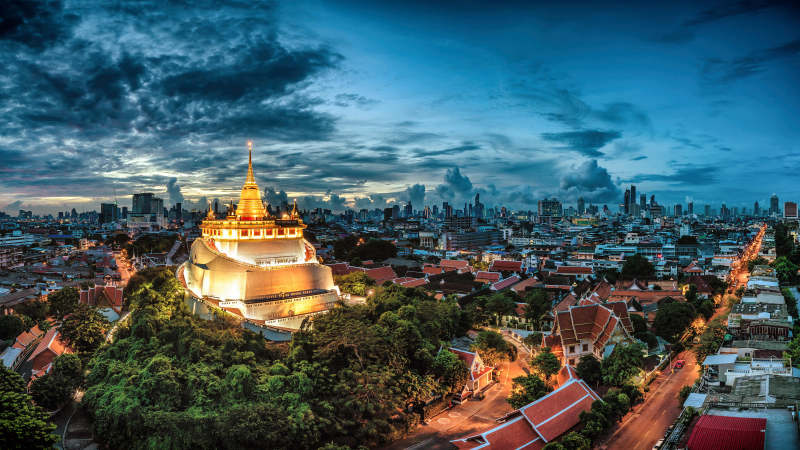
Wat Saket 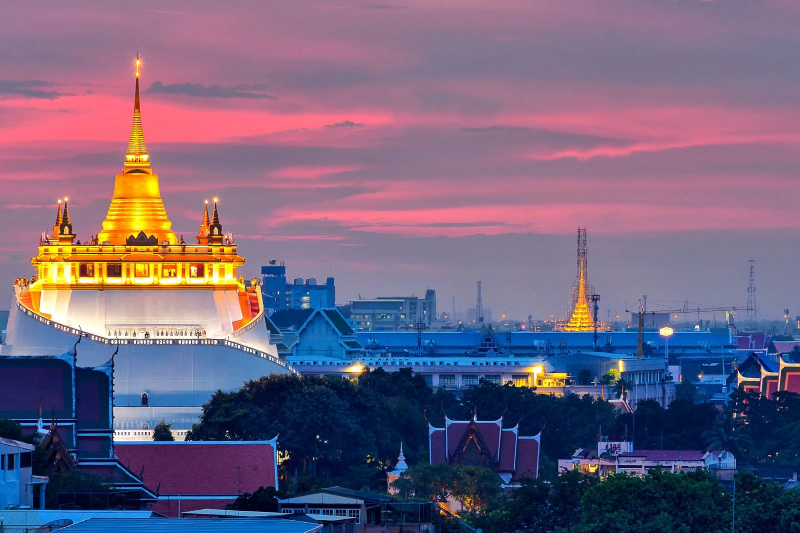
Wat Saket -
A gold statue of a seated Buddha weighing 5,500 kilograms and costing more than $250 million is the main draw of Wat Traimit, a small temple in Bangkok's Chinatown. The three-meter-tall gold statue, which was built during the Sukhothai Dynasty, was most likely constructed in the 13th century.
The statue is the largest golden statue of Buddha in the world. Its weight is 5500 kg and its height is about 3 meters. The piece of stucco that covered the statue of Buddha is still exposed to the public in the temple. The entire sculpture is a priceless jewel; the eyes' pupils are black sapphires and even the whites of the statue's eyes are made of pearl. Wat Traimit has a museum for people who are interested in the history of the statue through film and photographic displays. Every day from 8 am to 5 pm, the temple is accessible. The best time to visit is early in the day because it is quiet and there are fewer visitors. Mondays are a day off for the museum.
Address: Charoen Krung Rd, Talat Noi, Samphanthawong, Bangkok
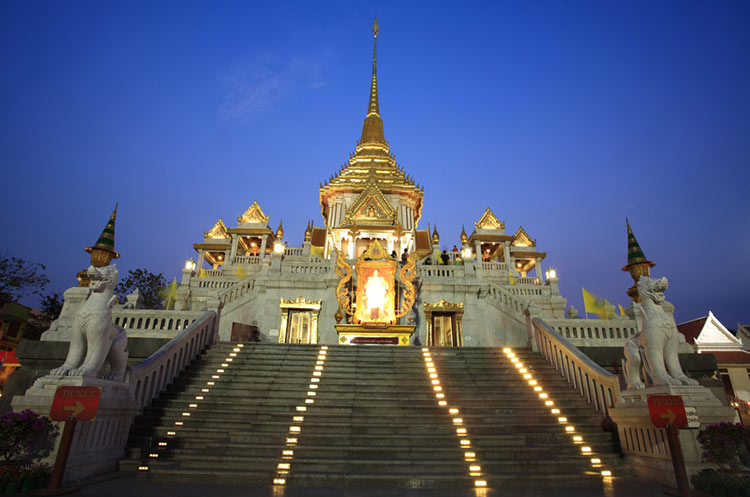
Wat Traimit 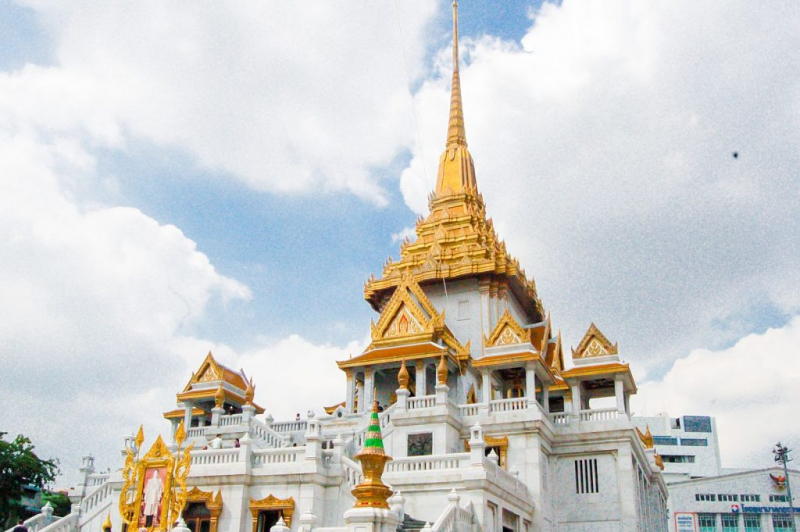
Wat Traimit -
Wat Suwannaram was originally a different temple (Wat Thong), then it was used as an execution site during the Burmese War, and finally, it served as a crematorium for members of the royal family. It wasn't until King Rama I ordered a repair in the 18th century that the temple was turned into the beautiful structure you see today when you go there.
The enormous golden Buddha and the vibrant red murals that cover the walls and ceilings of the temple are its most eye-catching features. Both have been meticulously kept throughout the centuries and remain as remarkable today as they did then. The temple's grounds are great for taking a stroll in quiet, feeding some fish, and taking in the many interesting photo opportunities, such as the magical tiny library on stilts that is located in the middle of a pond.
Address: 32 Siri Rat, Bangkok Noi, Bangkok
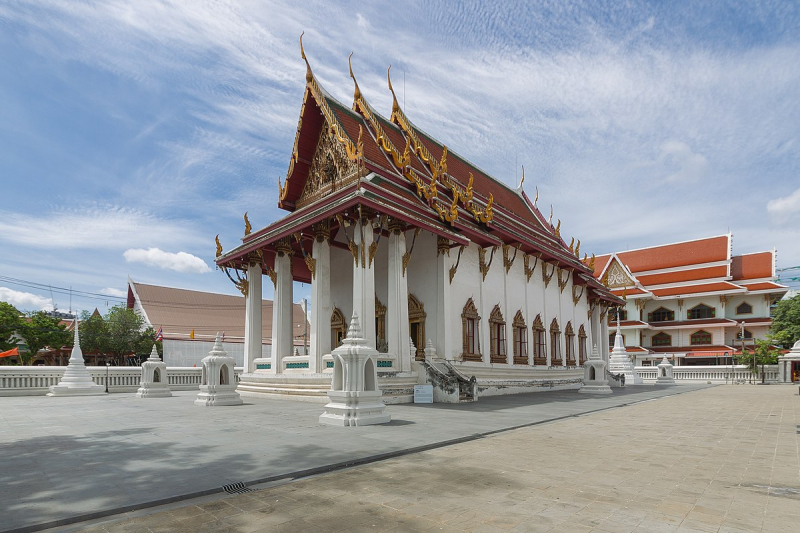
Wat Suwannaram 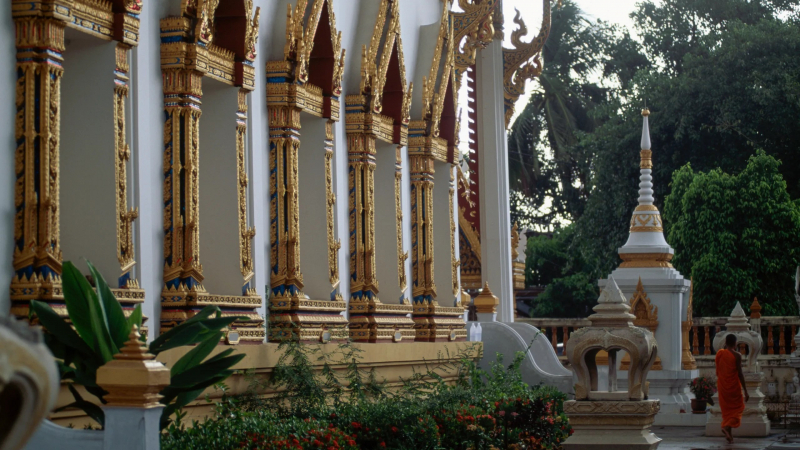
Wat Suwannaram -
East of the Grand Palace, adjacent to Pa Than Bridge, is where you'll find Wat Mahathat. The temple is said to be one of Ayutthaya's oldest temples (1370-88).
Thailand's Wat Phra Mahathat was a royal temple for the Ayutthaya Kingdom. Because it housed the Buddha's holy relic, it is one of the most ancient and important temples in Ayutthaya's history. The temple is located in the area of the Ayutthaya Historical Park nowadays. Wat Mahathat was previously one of the most significant monasteries in Ayutthaya, a site of reverence where important royal ceremonies were held and where the Buddha's relics were originally intended to be kept. The iconic Buddha's head that is embedded in a tree trunk and surrounded by roots draws tourists to the temple nowadays.
Address: Naresuan Rd, Phra Nakhon Si Khlong Suan Plu Sub-district, Ayutthaya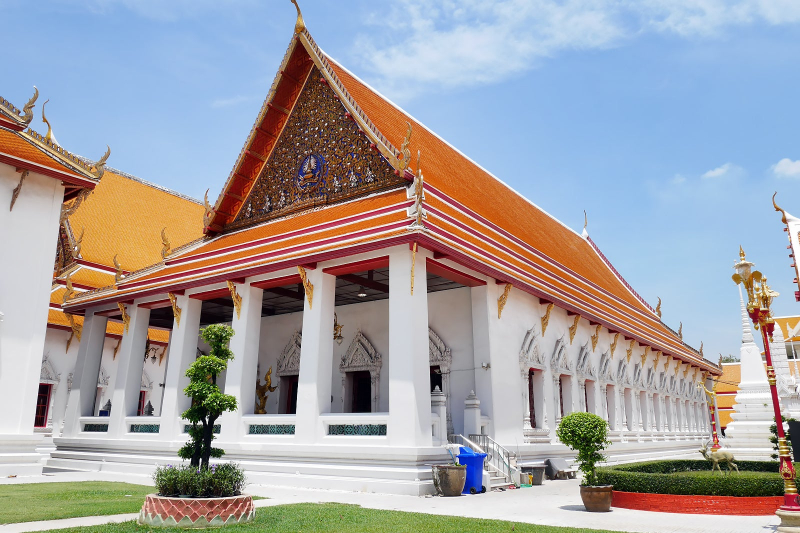
Wat Mahathat 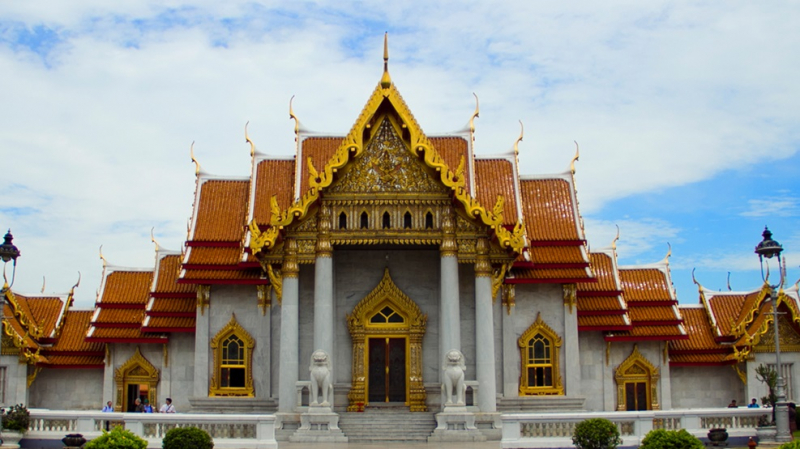
Wat Mahathat -
Despite being a magnificent temple in and of itself, Wat Suthat is more well-known for the enormous swing that is located outside. The Sao Ghingcha also referred to as the "giant red swing", is a 21-meter-tall structure made entirely of teak wood.
The swing was initially built in the 1700s to be used in traditional Brahmin (Hinduist) ceremonies, but after being struck by lightning, it was reduced to decoration mainly. The Giant Swing, a religious building of the Brahman faith that is almost 21 meters (69 feet) tall, was first used as a part of a ceremony during the Brahman Festival. Teams of three would swing up to 25 meters ("up to Heaven") and alternately balance on a dangerously small board while attempting to catch a bag of silver coins in their teeth. That didn't always end up well, and the practice was eventually banned and the swing part removed. The courtyard includes 156 Buddha statues around the main chapel and other hand-carved statues and decorations adorning walls and roofs.
Address: Bamrung Mueang Road, Wat Rat Baphit, Khet Phra Nakhon, Bangkok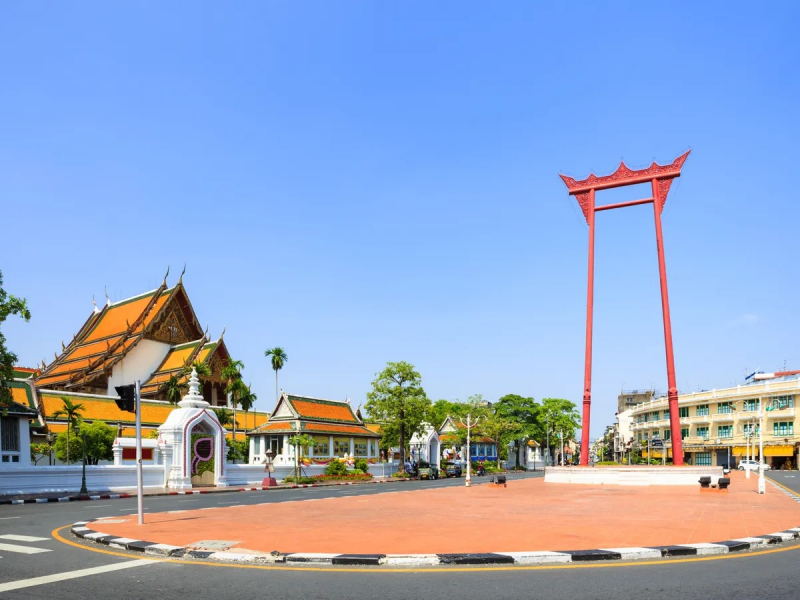
Wat Suthat 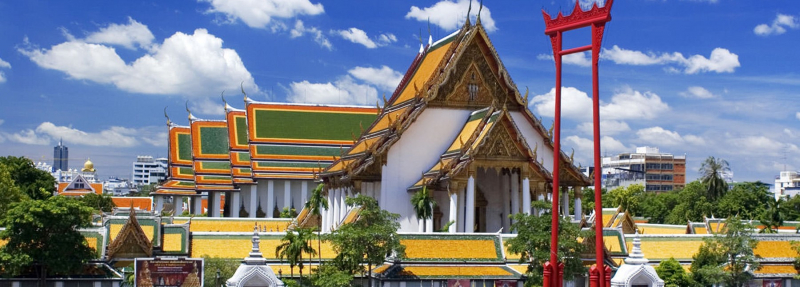
Wat Suthat -
On the western bank of the Chao Praya river is Wat Prayoon, also known as Wat Rua Lek. The temple, which was constructed during the era of King Rama III, is notable for its large chedi (pagoda) inverted bell shape, turtle-shaped "mountain" housing spirit houses, and turtle feed pond.
As a typical Buddhist temple, Wat Prayoon has ordination halls, assembly halls, meditation halls, chedi, and a library. Wat Prayoon's bright red, 1.5-meter-tall iron fence made of lances, swords, and other ancient weapons is what distinguishes it from other temples. The bell-shaped chedi (Phra Boromthat Maha Chedi or Great Chedi), which houses Buddha's relics, is surrounded by a porch and 18 satellite chedis on an 80-meter base. Because of its size, height, and architectural features, it is quite a stunning sight.
Address: 24 Prajadhipok Rd, Wat Kanlaya, Thon Buri, Bangkok
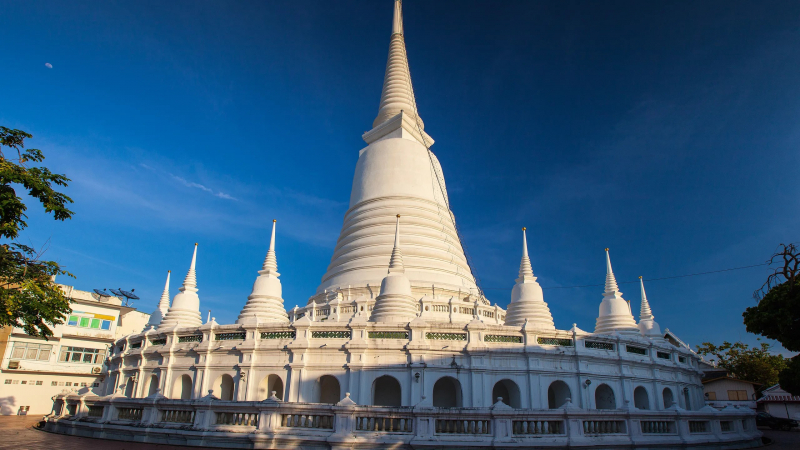
Wat Prayoon 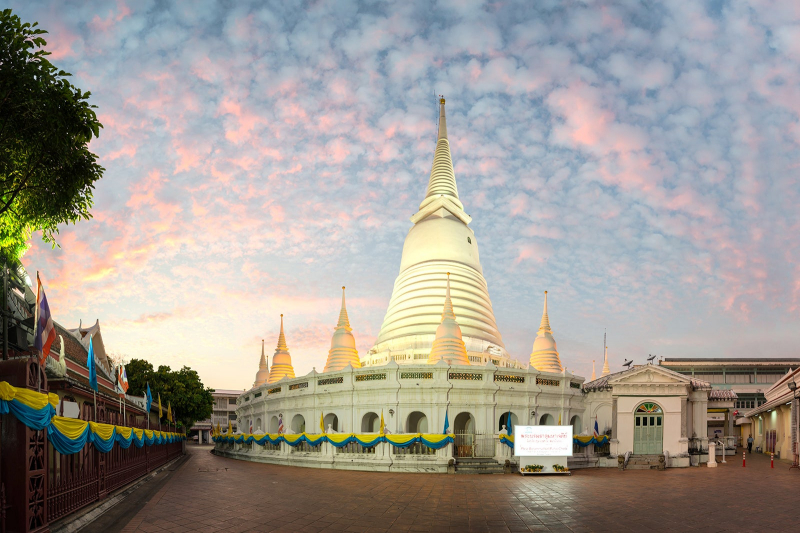
Wat Prayoon












